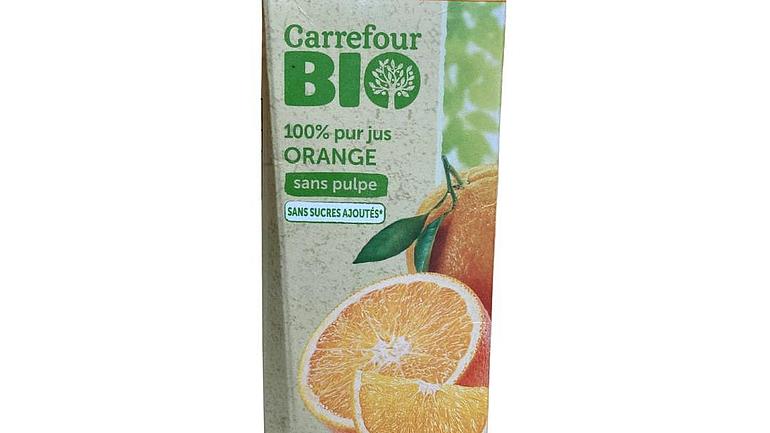EU "breakfast directive": transparency on honey but misleading sugar labelling of fruit juices, criticises foodwatch
The international consumer organisation foodwatch has criticised the EU's agreement on the so-called ‘breakfast directive’, in particular concerning fruit juices.
Although the package contains some improvements in labelling the origin of honey leading to more transparency on the origin and the quantity of imported honey, labelling alone will not be enough to stop the massive fraud of fake honey. And in respect to the sugar content in fruit juices, consumers will continue to be misled. That’s where foodwatch is most critical of the directive. foodwatch calls for thorough review of all health and nutrition claims in the EU.
Sugar in juice is also "free sugar"
The compromise reached between the Council, Parliament and Commission and rubber stamped by the plenary meeting yesterday is to allow the statement “fruit juices contain only naturally occurring sugars” on a fruit juice package. foodwatch criticised this claim as misleading, since all sugar is indeed ‘naturally occurring’ – but this does not mean it is good to consume.
"The only sugars that are truly ‘natural’ are those in a food which is intact. Once fruit has been juiced and had all the fibre removed, it is classified as a ‘free sugar’ and has the same damaging health effects as added sugar according to EFSA", commented Suzy Sumner, head of the Brussels Office for foodwatch international.
Commission bowing to juice industry
The Commission originally proposed that fruit juice companies could use the claim ‘no added sugar’ on the front of the packet. This is despite the fact that it was decided in 2012 to ban the use of exactly this nutrition claim for fruit juice and the practice has been illegal since 2016. However, the industry claims that consumers don’t know that fruit juice is not allowed to contain added sugar, despite it clearly not being listed on a mandatory ingredients label on the back of the pack. The Commission bowed to the pressure of juice industry and proposed to turn back 2012 legislation so that the misleading claim can be used again.
"As a consumer in the EU we think that claims on the front of a packet are correct and checked – but they are not. The claim ‘no added sugar’ can be seen on the front of many juice packets in the supermarket, despite it being illegal since 2016. Replacing it with another misleading and meaningless statement is not the answer. There is an absence of clear regulation of nutrition and health claims for all products and enforcement of this regulation", said foodwatch’s Suzy Sumner.
The claim ‘no added sugar’ can be seen on the front of many juice packets in the supermarket, despite it being illegal since 2016.
Nutrition is the most important factor in cancer prevention
foodwatch calls for a full review of the Nutrition and Health Claims legislation which is now 14 years overdue. European citizens are facing a metabolic health crisis, with levels of obesity, diabetes and other non-communicable diseases sky rocketing. The OECD report on health disparities of cancer shows nutrition to be the second most important factor after smoking in the prevention of cancer.
"Around a fifth of the EU population smokes whilst 100% of the EU population eats!" said Suzy Sumner. "Nutrition therefore clearly is the most important factor in cancer prevention for the whole population."
To date, the current Commission has failed to release the Food Information to Consumers legislation package which would provide a front of pack nutritional label, nutrient profiles and regulation on health and nutrition claims. foodwatch will not give up and has written to the Commission President and Minister of Health for the Belgian Presidency to ask to make this a priority.
Sources and additional information
- Open letter to the Commission and BE Presidency: Make Nutrition a Priority
- EU directives on labelling of fruit juice
- The EU's 'no added sugars' fruit-juice label sleight-of-hand, opinion piece by foodwatch (30/11/2023)
- One in two batches of honey imported into the EU is suspected to be fraudulent and often go undetected, reveals the European Commission, foodwatch press release (24/03/2023)
- EFSA on sugar intake
- OECD report
- Tobacco consumption in the EU
